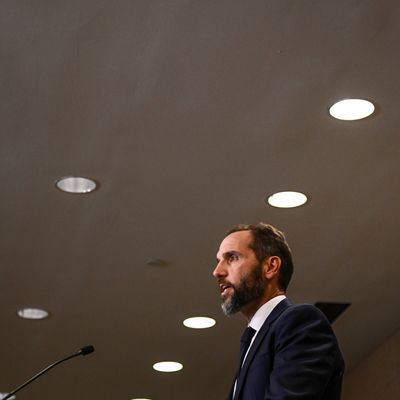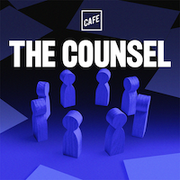

Photo: Ricky Carioti/The Washington Post/Getty Images
I remember vividly the first time I lost a key piece of evidence. The NYPD had caught our defendant in Washington Heights with a fake police badge around his neck and a loaded gun in his waistband, and we charged him with federal-firearms and armed-robbery conspiracy crimes. Better yet (for us on the prosecution side), we flipped a cooperating witness who would testify that he and the defendant had committed two prior armed robberies together by posing as cops and ripping off drug dealers.
A week or so before trial began, the judge held a conference to handle routine pre-trial housekeeping. I confidently laid out the cooperator’s expected testimony. “That’s out,” the judge ruled, nonchalantly. “Too prejudicial.” For those who think that every judicial decision is rendered in scholarly prose, replete with probing analysis and citations to applicable precedent: Welcome to the real world.
It was a kick in the gut. “That’s such bullshit. He can’t do that,” I whined afterward. “Sure he can,” my supervisor responded. “He’s the judge.”
My experience is a tiny-potatoes version of what the U.S. Supreme Court has done to Special Counsel Jack Smith and his 2020 election-subversion case against Donald Trump. The Court declared, for the first time in our history, that a president is entitled to criminal immunity for official acts. That part was no surprise; the law has long recognized civil immunity, and the justices during oral argument seemed in no mood to affirm the lower courts’ outright rejection of Trump’s claim.
But the breadth of the Supreme Court’s decision was astonishing. The majority held, for example, that “in dividing official from unofficial conduct, courts may not inquire into the President’s motives.” (It remains unclear exactly how a judge is supposed to draw that vital distinction.) And the Court ruled that if conduct is immune, prosecutors can’t base a criminal charge on it — nor can they mention it at all during trial, even as necessary context or background.
Now the case has landed back in trial court, before Judge Tanya Chutkan. She originally wanted the parties back before her today, but Smith asked for a few more weeks to gather his thoughts; he clearly has accepted that there won’t be a pre-election trial, despite his prior dogged efforts. Trump’s counsel, ever intent on slowing things down, happily consented to the prosecution’s request for delay. When Court reconvenes on September 5, it’ll be up to the judge to pick through the wreckage and figure out what can be salvaged.
On that question, the Supreme Court has offered pointed guidance, and it bodes poorly for the core of Smith’s indictment. Trump’s effort to coerce the Justice Department to gin up proof of nonexistent election fraud? Almost certainly an “official act,” and therefore immune and out of the case altogether. Trump’s pressure campaign aimed at his vice-president, Mike Pence? Probably out. And Trump’s public statements, including his tweets and January 6 Ellipse speech? Likely toast, too.
The Supreme Court conspicuously reminded Judge Chutkan that it’s unimpressed with her work so far and will be watching her closely. The justices in the majority blasted the lower courts for “the expedition of this case, the lack of factual analysis … and the absence of pertinent briefing by the parties.” Indeed, as we’ve noted here before, Smith, Chutkan, and the intermediate appeals-court judges tried to shortcut ordinary process to get Trump tried before the election; the Supreme Court noticed and disapproved. Most importantly on the vital timing issue, the Court has specified that Trump can appeal Judge Chutkan’s decisions about what conduct is (and is not) immune, before trial starts. That means, as a practical matter, there’s a zero-point-zero percent chance this trial happens before the November 2024 election.

Listen to The Counsel podcast
Subscribe on:
If you’ve been hoping that Trump faces accountability for trying to steal the 2020 election before voters head to the polls for the next one, don’t despair — not fully, anyway. (For the record, I’m with you. The real problem is that DOJ took over two and a half years to charge the case.) Judge Chutkan still can — and, I believe, will — order an evidentiary hearing to enable Smith to air some of his most explosive evidence before voters head to the polls.
The judge now must sift through the prosecution’s evidence and determine how much of Trump’s alleged conduct was an official act (and therefore immune), and which conduct can remain in the case. She has some leeway here. The judge could opt to take “proffers” from both sides — detailed statements by the lawyers about what they expect their evidence to show. That’s a little flat, but it’s also perfectly permissible and efficient. And then there’s the more sensational alternative: The judge can permit Smith to call live witnesses to expound from the stand on what their trial testimony would be.
I expect Smith to push for door number two, and Judge Chutkan to agree. If that happens, brace for a series of dramatic in-court encounters. We could see Trump’s former chief of staff, Mark Meadows, take the stand to give his first-ever public accounting of what his boss did (and didn’t do) before and on January 6. And Mike Pence could testify about how Trump begged and eventually threatened him in an effort to get him to throw the election — and how, on January 6, he had to run for his life to avoid the frothing mob.
No, an evidentiary hearing won’t hit nearly as hard as a jury trial and verdict. And we won’t actually see or hear any of it, because federal courts don’t permit cameras or live audio streaming. (Fair enough, given that it’s apparently the year 1892 right now.) We likely already know the most damaging information, as revealed in 2022 during the unforgettable January 6 Select Committee hearings in Congress, and the ensuing 800-plus page report. But, really, imagine: Trump’s own former chief of staff and VP taking the stand in, say, September of an election year, to describe firsthand how their former boss trampled on the Constitution to try to steal an election. Even if we all mostly know the story by now, that simply can’t be good for Trump at the polls, just weeks before voters cast their ballots.
It’s unclear how much of Smith’s case will ultimately survive the Supreme Court’s strafing. He might eventually go to trial on a tattered indictment focused on Trump’s effort to pressure state and local officials, without any of the damning evidence relating to DOJ and the VP and incitement of the rally crowd. Or the wounds inflicted by the Supreme Court might ultimately prove fatal.
But if Smith’s goal is to expose Trump’s conduct to the American public before the election — and let’s face it, that’s plainly been a driving force for the special counsel all along, despite his refusal to acknowledge it — he’ll still have a backdoor path to partial success.
This article also appeared in the free CAFE Brief newsletter. You can find more analysis of law and politics from Elie Honig, Preet Bharara, Joyce Vance, and other CAFE contributors at CAFE.com
Source link




